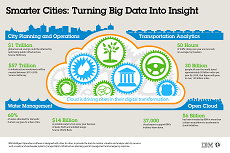November 26, 2013
BYOD is not a temporary problem generated by a few errant staff
While most organisations are increasingly feeling the imperative to “do mobile,” many don’t know where to begin. Today’s employers have diverse workforces, made up of full-time staff, external contracting agencies, independent professionals, and part-time staff. In addition to the changes in the workforce, all enterprises (business, government and community) have been pushing their IT processes beyond their own organisational boundaries and it is increasingly clear they don’t have absolute control over the tools used to access their corporate systems and data. All this means, advises the experts at Gartner, bring your own device (BOYD) is not just a purchasing issue, but should be approached more broadly with the applications and strategies necessary for a changing world.

























November 19, 2013
2020 vision is a useless metaphor for far-sightedness in a number of ways
by Simon Heath • Comment, Facilities management, Furniture, Technology, Workplace design
More →